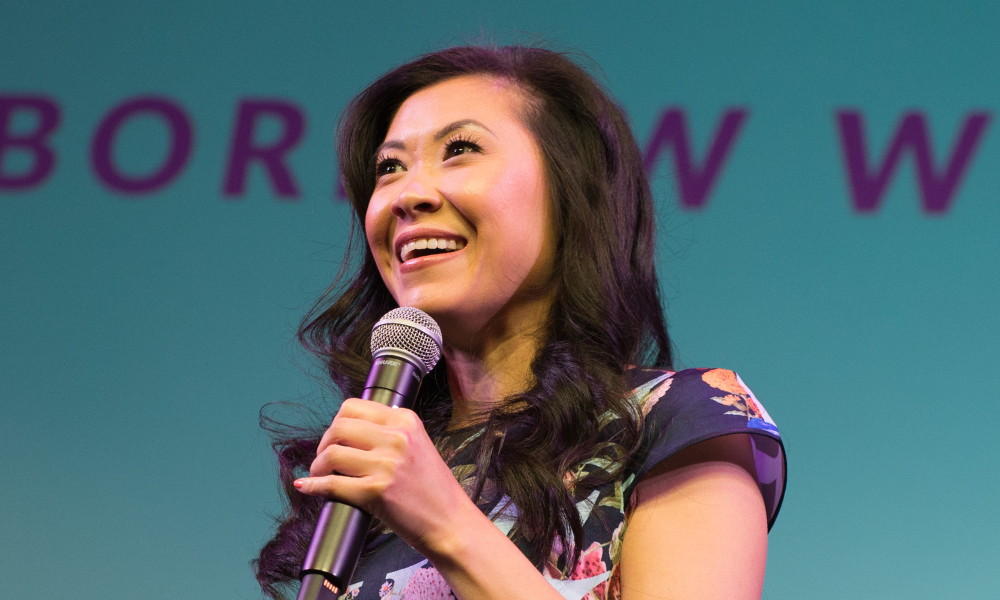Star Melissa Leong on the importance of balancing emotional wellbeing and personal finance goals

As one of Canada’s most beloved authorities on personal finance, Melissa Leong is something of an icon in the wealth world. A repeat guest on The Drew Barrymore Show, an expert on CTV’s The Social and a best-selling author, Leong has an incredible gift for demystifying personal finance and inspiring people to take control of their wealth with confidence and clarity.
Now, as a speaker at our upcoming Women in Wealth Summit, Leong says that the relationship between personal finance and emotional wellbeing is hitting home hard, especially at a time when many are grappling with the dual pressures of rising living costs and increasing economic uncertainty.
"The emotional burden of managing money is absolutely heavier for the average person,” she explains. “Research shows that financial challenges are one of the leading causes stress and anxiety – with many surveys showing that money worries are keeping people awake at night. What we don't consider is that the stress creates a perfect storm, this whirling vortex that feeds itself - which results in more stress.”
Under stress, individuals often fall into what Leong calls "present bias," prioritizing short-term needs over long-term financial goals. This can lead to impulsive decisions, like spending for immediate gratification, which in turn creates more stress and worsens financial situations. The result is a vicious cycle, one where people feel trapped and increasingly anxious about their financial futures.
The pandemic also plays a significant role in this current financial stress. Leong highlights how many people entered the pandemic already in precarious financial situations, only for things to worsen as job security dwindled and bills mounted.
"The longer we stay in this kind of environment, the more we stay in this pressure cooker of financial stress," she says. “When we talk about recovery, it's just going to be more difficult. I think people need to rely more on support networks, perhaps wealth advisors, and outside systems to help them get a breath in.”
Yet, amidst this bleak outlook, Leong urges a shift in mindset. Leong believes it's crucial to focus on what can be controlled, such as personal financial goals, values, and support systems, rather than fixating on external factors like inflation and interest rates.
"We need to focus on what we can control, on reframing our financial goals," she says, calling for a recalibration of priorities toward emotional stability and security rather than pure wealth accumulation.
Interestingly, Leong sees a generational shift in how younger people perceive the connection between money and happiness. She observes that younger generations, having faced economic struggles, are less tied to traditional financial milestones like home ownership. Instead, they prioritize experiences and a balanced life.
"They’ve also always prioritized experiences over material possessions," she notes, attributing this to a rebellion against the hustle culture that defined previous generations. Leong also recognizes the democratization of financial education through social media and podcasts, but she cautions against the misinformation that can often proliferate online.
Leong's passion for behavioral economics shines through as she discusses how these principles can help individuals navigate financial decisions more effectively.
"As humans, we know what we know, but we don’t always do what we know," she says. “Behavioral economics is fantastic because it helps you try to outsmart yourself. So for example, we're not always rational when it comes to money - there's emotion involved, there is cognitive biases – and we have to counter this.”
Here, one of the most compelling aspects of Leong’s advice is her focus on the deeper, psychological aspects of money management. She’s not simply offering budget tips or investment strategies; she’s encouraging people to examine the underlying emotions and motivations driving their financial behaviors. By doing so, individuals can make more informed, emotionally intelligent decisions that align with their values and long-term goals.
Leong’s message is ultimately one of grace and self-compassion. She acknowledges the immense financial pressures people are under, but she also encourages a shift in how we think about money, particularly during tough times.
"It’s important to rethink how we use money to support our well-being during tough times," she explains. Whether it’s adjusting expectations, seeking social support, or simply being kinder to oneself, Leong advocates for a more emotionally grounded approach to personal finance.
As individuals continue to face mounting financial challenges, Leong’s advice offers a path forward, not just in terms of practical money management but in cultivating a healthier, more balanced relationship with money.
“Financial health is a journey, not a race," she adds.
Book your tickets to our upcoming Women in Wealth Summit here.


